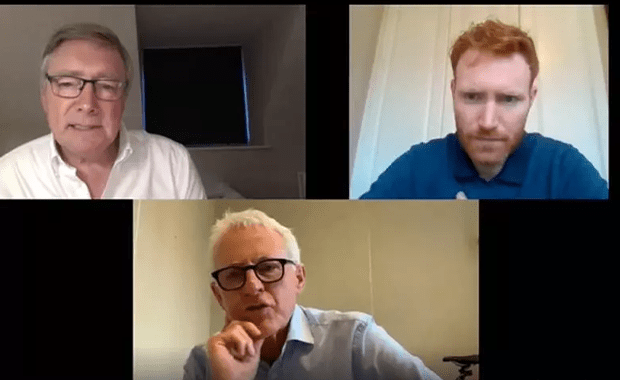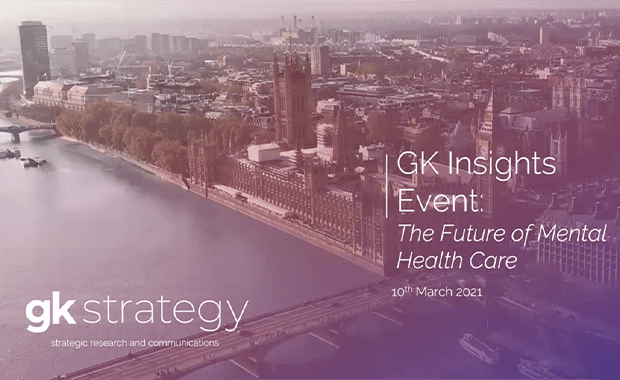POLITICAL LITERACY MAKES BUSINESS SENSE
Robin Grainger, Co-Founder & CEO, GK Strategy talks political literacy with the brilliant Rebecca Deegan & I Have a Voice https://www.ihaveavoice.org.uk/political-literacy-makes-business-sense
March 2021
You will be hard pressed to find a business or organisation that is not impacted by the decisions of politicians and regulators. They determine tax rates; employee protections; regulation in relation to capital, competition and consumers; trade tariffs and manage global supply chains; which sectors receive subsides; and the level of investment in supporting infrastructure or R&D. I could go on. The point is – politics is central to how organisations function and to the role they play in the economy and society.
But while COVID and Brexit have made these linkages clearer, we see a big gap between ‘political knowledge’ and ‘political literacy’. Most businesses and investors know what current policies are (political knowledge) but often don’t understand why and how policy might change, the role they can play in informing those changes, and the potential impact of those changes (political literacy).
Public affairs professionals help organisations improve their political knowledge, but mostly, we help them understand political risk, and navigate Parliament and its processes, to minimise risk and create a supportive policy landscape. We are able to do this most effectively, and to the benefit of businesses and the government, when there is an existing understanding of these interlinkages.
Improving understanding of how politics works will enable business leaders to better identify and analyse relevant political risks. In doing so, they will be able to factor the potential to maximise upsides, as well as the need to minimise and mitigate negative risks, into their business strategy and plans.
This also benefits the government
Business leaders who understand political risk often share their expertise and experience with policymakers to ensure that policy developments have the desired effect and that unintended consequences are minimised. This is a good thing. In the same way that charities such as Shelter understand how to prevent and reduce homelessness, businesses have the data and insight to know what their consumers (the public) want and what protections are needed to ensure markets work effectively. Therefore, business and government often work together to come up with solutions to policy dilemmas.
We have also seen this in relation to climate change, where investors, companies, governments, regulators, ratings agencies and business forums have worked closely together to introduce a mix of voluntary and mandatory tools, regulations, reporting requirements and best practice guidelines to drive investment and business practices to address climate change and create a greener economy.
This example demonstrates that not only do businesses provide products that seek to align economic goals with societal and environmental goals, but they also help to inform and in some cases drive policy developments in the public interest. On the flip side, this means the sector is inextricably linked to political decisions and understanding how these decisions are made is beneficial to business leaders.
There are many examples of this level of interaction and interdependence between business and government. Leaders in these businesses stand to benefit greatly from knowing how decisions are made in Parliament, both so they can feed into those processes and so they can keep on top of what those decisions mean for their operations. Being politically literate makes business sense.
Political literacy
Political literacy does not mean pushing one political party’s agenda over another. In fact, as public affairs professionals it often is crucial that we remain party-neutral. Instead, we help clients to navigate the UK’s democratic and parliamentary processes. For example, the role of Select Committee inquiries in developing policy recommendations and All-Party Parliamentary Groups’ ability to build consensus and awareness.
These are skills that would benefit all business leaders, and let’s face it, all members of society as ultimately these decisions impact them, either as consumers or citizens. That’sAt GK Strategy we’re supporting I have a voice – a social enterprise that delivers political education to young people up and down the country.
Our profession is uniquely placed to share its experience with anyone who wants to understand how politics works. We work across political parties and political issues. We understand the need to find workable policy solutions. We know that building cross-party support is often much more productive than being divisive. Spreading this foundational level of knowledge will serve our industry, our clients, our stakeholders and our society.
For too long, too many public affairs professionals have been happy to give the impression that the world of politics and regulation is a world that only people in the Westminster bubble of politics, media, think tanks, trade associations, and consultancies can really understand.
It’s time for this to change.
Politics is complex but not unintelligible. It’s the responsibility of our profession – and indeed educators – to communicate that and make politics a more navigable territory for everybody.






